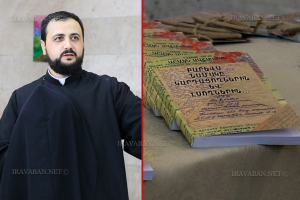RA Constitution provides all citizens with the right to judiciary remedies for legal matters. An integral part of judiciary rights is the ability to appeal decisions and request for review. The upper circle of judiciary (except for constitutional justice issues). The RA legislation on submitted and returning applications through Court of Appeal allows for a practice, where appeal is returned without review (investigation of the case), without indication of flaws in the appeal and ways to improve it.
Court of appeal applications are to be reviewed for comprehensive accuracy and compliance with requirements. Material issues of a case, specifically whether rights of the applicant are infringed or not, the court attends to only while content investigation of the case, after which only it becomes possible to determined whether rights of the citizen were violated which circumstance is often neglected by RA Court of Appeal.
International practice shows that in terms of appeals court should not have limitless discretion but legally defined rights and obligations. To eliminate flaws in appeals and resubmit them, the time limits should focus the support to protection of citizen rights but not to their legal limitation. Lack of timeline should not exclude the right to eliminate flaw within legally ascribed timeframes (at least for once properly using judicial rights). Court of appeal cannot decide on the right of resubmitting appeal or reforming the inefficiencies without mentioning the grounds. Thus the discretion to prescribe a timeframe for improving appeal can often lead to willful manipulations, which violates RA Constitution articles 18 and 19.
RA Constitutional Court decision of 27 May, 2008 registers that there are no legal provisions balancing the mentioned discretions and on the other hand, there is no opportunity for resubmission, when court does not provide a timeframe for amending the appeal. SO there are no guarantees for limiting excessive discretion, as well as for overruling it. It is noteworthy that the right for judicial protection implies that court process should not be rejected due to flaws in the quality of appeal. While in the case of appeal complaint, the right to correct the application depends on the discretion of the court of appeal. Legal practice shows that abuse of discretion by the appeal courts is going beyond legal framework and gets into manipulative field.
RA law on “Constitutional Court” article 63, part 1 says that in defining the constitutional appropriateness of a legal act, court evaluates both the law and its practical usage. Constitutional court, in its review of the discretion of court of appeal of applications and their rejection based on manipulation of timeline, found that legal act unconstitutional. However the manipulations continue in practice which contradict to the decision of the Constitutional Court. There are two preconditions for that: 1) Legal, and 2) Subjective.
The legal precondition is about that fact that the there are three months for review of a legal act issue (including CC decision), beginning with CC decision coming into force. Thus, when court of appeal does not implement the CC decision requirements (as in returning the appeal) and the three-month period is passed, citizen loses judiciary protection right (part of which is appeal of court decision and review), which is a serious violation of citizen’s rights.
Within subjective preconditions, it is possible to review the conflict of “RA Constitutional Court “deciding constitutionality of legal act” and “single-type implementation of law” by court of appeal, which is vividly expressed in the context of the discretion of the latter court. In addition, under the circumstance, the issue of dominance and authority and legal stance come up and try to confront each other which results in losses for citizens and violation of citizen rights.















